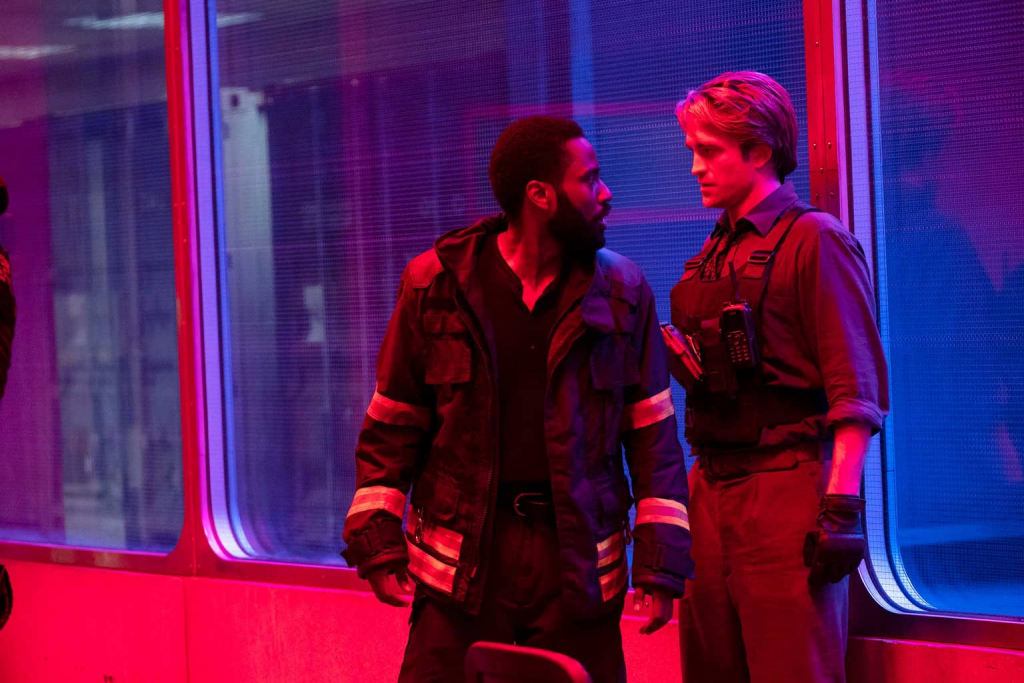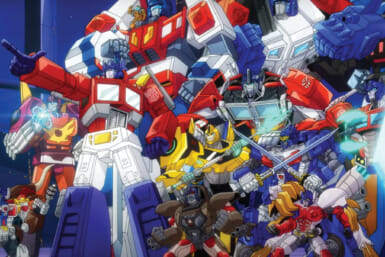Tenet is the 11th feature film from Christopher Nolan; a man who – over the past decade and a half – has carved himself a reputation of being cinema’s boldest and most trusted auteur. No other mainstream film director working today has the studio support, along with the clout, that enables him or her to be able to tackle any subject he or she so desires; and boy are we lucky that Nolan chooses to pursue projects such as Tenet.
Denzel’s Son Saves the World

Tenet concerns a nameless “protagonist” (John David Washington) who is tasked with “stopping World War III” by using a technique called “inversion” that allows him, and others, to manipulate the flow of time. Interstellar (2014) may have been Nolan’s most ambitious film, but Tenet takes the cake for being Nolan’s most complicated film; and it is the complicated nature of its plot that is both at the root cause of the movies biggest downfall while also providing the movie with that magnetic allure that makes it so entertaining and fascinating to watch – like a strange paradox at the center of a Nolan film itself.
What is Tenet About?
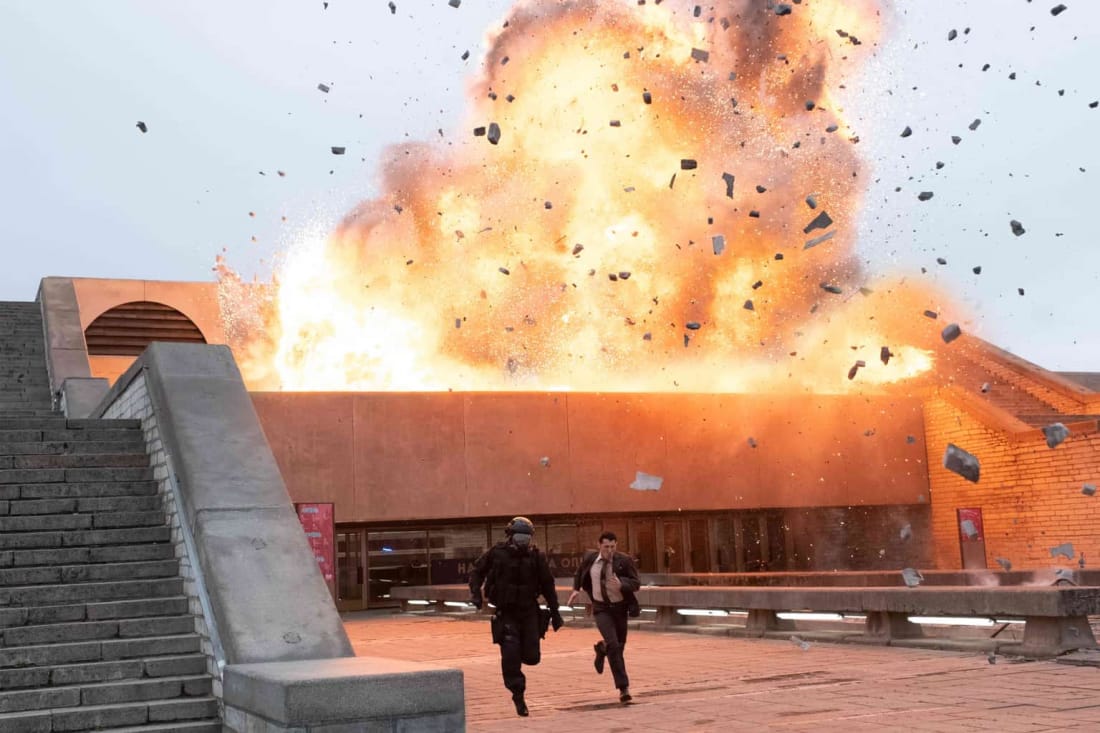
The film is largely a film of two halves. The first 75 minutes or so of this two-and-a-half hour movie is Nolan’s attempt at getting the audience settled in for a plot most of us will inevitably be lost on (on first viewing anyway). This consists of many character introductions, location swapping and a surprisingly thin (though perhaps merciful) explanation of “inversion” – Nolan opts for a more show not tell approach to the trickery of time travel in Tenet, though the film is not completely void of the academic science talk that was prevalent in Interstellar. The second half of the movie feels like the movie Nolan really wanted to make – and it’s a hell of a blast. The first half does at times feel empty and cold, largely due to the lack of character given to the actors’ roles. Nolan definitely gives an emphasis of plot over character on Tenet.

The movie doesn’t feel disjointed however – it has a steady focus that Nolan never seems to lose sight of. Interstellar and Inception (2010) grounded their high-concept ideas with human characters and moments of real tenderness, and Tenet doesn’t quite manage that. That’s not to say that all films should have moments of sentiment, as the action set-pieces drive the majority of this movie, and it works for the most part; I just wish we’d gotten to know more about the characters.
The Stars of Tenet
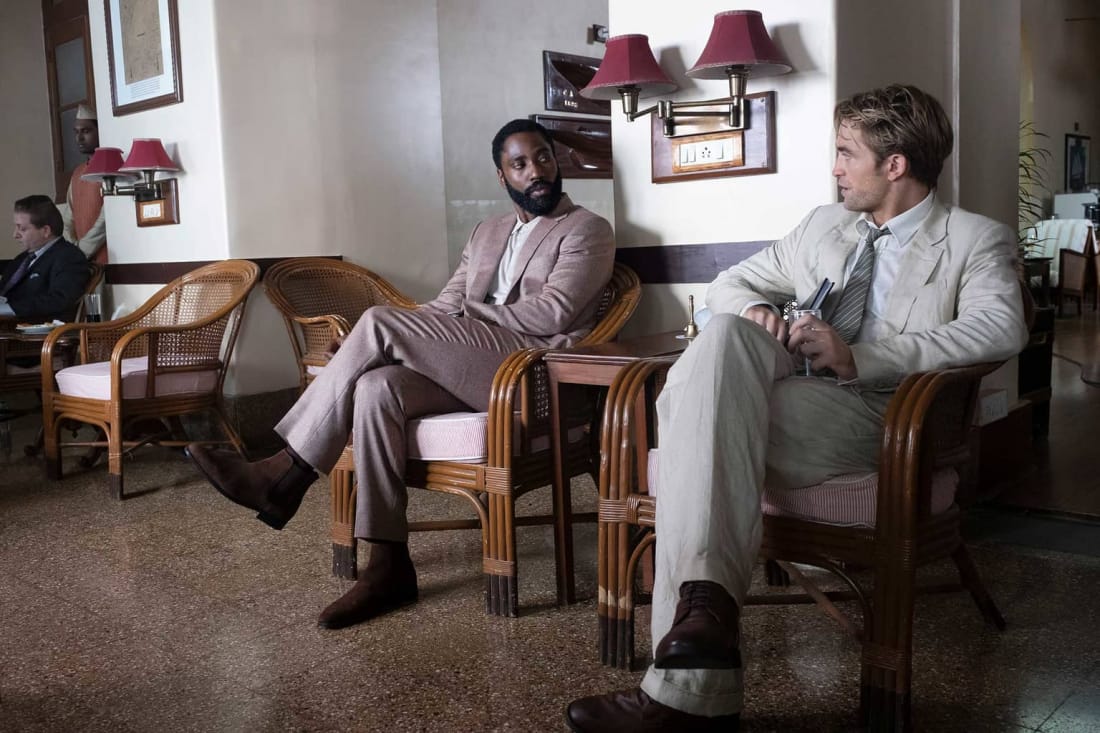
John David Washington does an admirable job in the lead role. He proves here that he has the charisma and the star-quality (taking after his father, Denzel) to lead big budget epics. Robert Pattison (in his first chance to convince as the next Batman) is a scene stealer in a supporting role, though it’s Australian actress Elizabeth Debicki who gives the films strongest performance as Washington’s (sort of) love interest, and main antagonist, Kenneth Branagh’s, estranged wife. Branagh plays Russian oligarch Andrei Sator, and, while Branagh does the best with what he’s given, Sator isn’t the most interesting villain.
This is because his character is essentially a cliched carbon copy of a Bond villain (I was waiting for him to reveal a glass eye as he drank vodka on his super yacht). Dunkirk (2017) cinematographer Hoyte van Hoytema provides the cold, stark realism that makes all the truly spectacular action set-pieces (most of it practical) feel that much more in-your-face and gritty. Composer Ludwig Göransson (Black Panther, 2018) takes over from frequent Nolan collaborator Hanz Zimmer, and he does a wonderful job of providing the bombastic score that echoes Zimmer’s previous work with Nolan, while also complementing the gargantuan scope of the movie.
Will Tenet Save Movie Theaters?
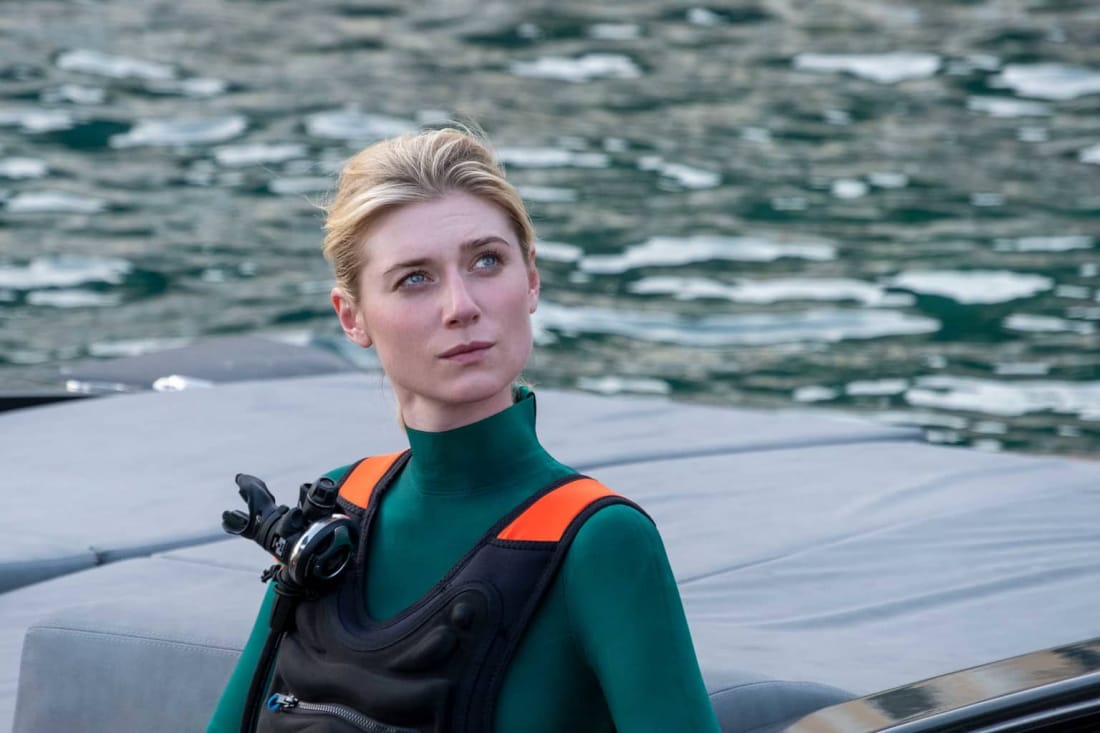
Nolan’s love of the James Bond movies is as clear as day in this film – certain shots could have been pulled right out of a Bond movie – but the immediate narrative concerning “inversion” and the idea of turning back time has been given so much attention from Nolan that everything else in the movie has been shoved to the background and rendered mute in comparison. It’s certainly a unique film – and a unique viewing experience – that is somewhat of a breath of fresh air for viewers (in a time where the multiplexes are dominated by superhero films), but a little more character and warmth would have made this easily one of Nolan’s finest.

As it is, it is a supremely entertaining film that is Nolan’s most extravagant and visually dazzling, but not quite his best. Also, it would seem destined that this would be the movie to welcome back audiences to the multiplexes during the ongoing coronavirus pandemic – can we view this movie as not just a test for the state of movie theaters in a post- coronavirus world, but also as a test for original big-budget films that doesn’t have a single comic-book character in it? If it were a superhero movie that had opened in Tenet’s place, would it have drawn bigger crowds? Probably. So go see this one. Go save the movie theater, and go save original big budget blockbusters.

